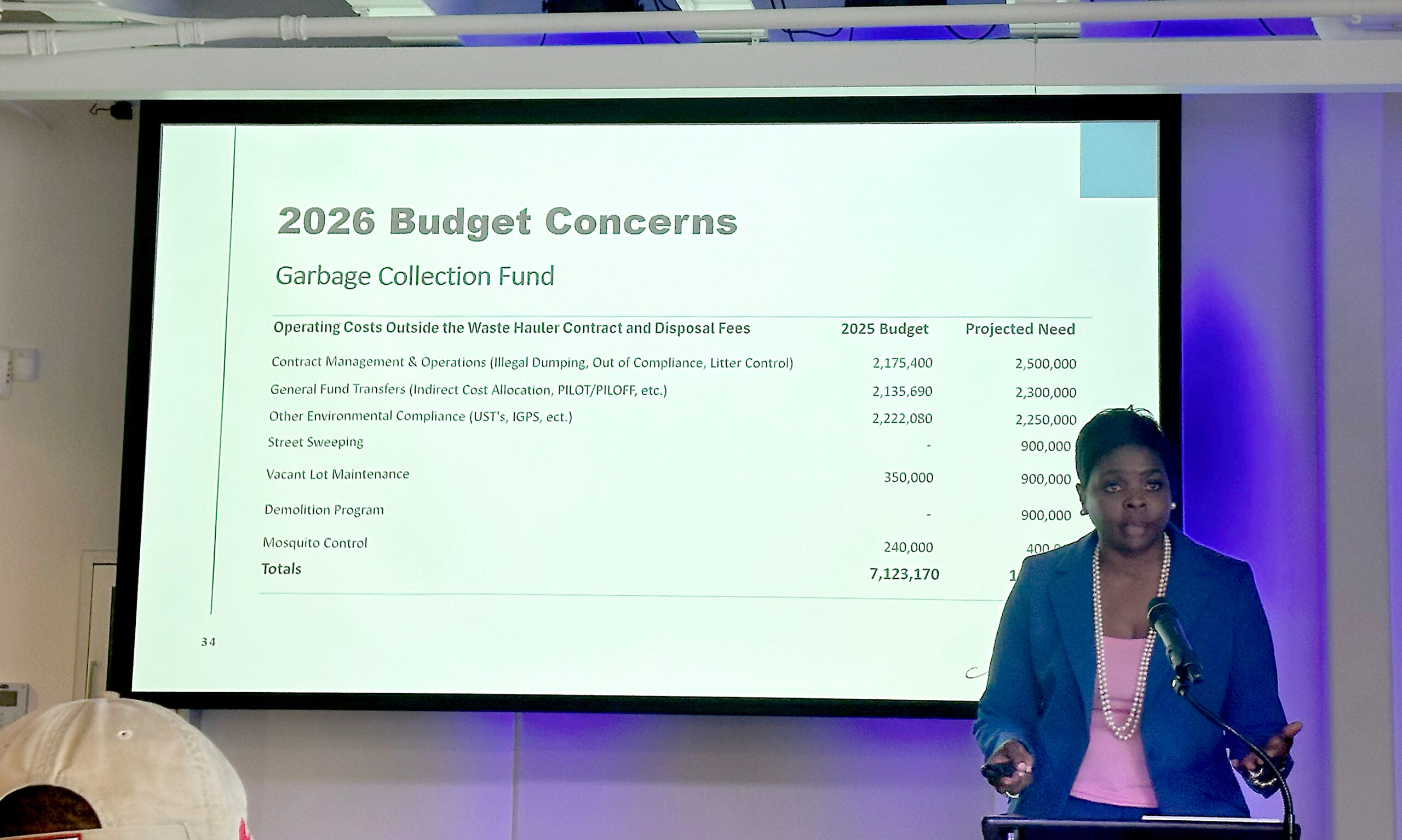Augusta elected leaders face challenging decisions as they prepare to set next year’s budget.
At a Monday retreat held at Golden Harvest Food Bank, Administrator Tameka Allen and Interim Finance Director Tim Schroer presented them options for closing what’s an inevitable gap between revenues and expenditures.
Among the options, Allen said, is one she said she is not recommending and one the commission has avoided for several years, she told commissioners and the mayor.
“This organization for a number of years has done the rollback,” Allen said. The rollback rate is the property tax rate that would raise the same revenue as the prior year.
“It sounds good,” Allen said. “It sounds good to the citizens… Until the next week, when they call and say the ditch is not clean, and you have to tell them you don’t have the money to fund it.”
Augusta’s general fund will face an automatic $7.3 million shortfall in 2026 when American Rescue Plan funding, used to shore up the budget by $7.3 million for several years, runs out, Schroer said.
Filling the $7.3 million gap is equal to making 3.9% across-the-board cuts to all departments, or eliminating the equivalent of 112 full-time, filled positions, he said.
Meanwhile, a one-mill tax increase next August would generate approximately $8 million, Schroer said. A mill is the increment used to calculate a home’s tax bill.
Or, Augusta could cut services. Allen noted a few that lose money, such as the Richmond County Correctional Institution, which houses state prisoners to provide unreimbursed labor.
Despite the state increasing the daily rate to house prisoners by $6, operating RCCI costs Augusta a net $2.6 million, she said.
Services such as Augusta Transit also require a $3 million annual subsidy, Allen said.
The city’s streetlight fund deficit, which has haunted city leaders for years, unless changes are made will again present a $2 million shortfall, she said.
An ongoing audit by Georgia Power could help alleviate the problem by having the energy provider take over many of Augusta’s lights, she said.
The city subsidizes Housing and Community Development by about $1.7 million, Schroer said. But an ongoing grant compliance audit will determine how much, “if any” of the city’s general fund will be needed to reimburse the U.S. Treasury some $6.5 million in pandemic funds the department failed to spend by a deadline, he said.
Other ongoing expenses include Richmond County Sheriff’s Office personnel. Funds used to bolster sheriff’s office salaries and make new hires have helped cut vacancies in half, to 110, but could push the department over budget this year, Schroer said.
Other expenses, including all employee health care as well as prisoner health care are up significantly, he said.
Among the final budget items considered at the retreat were non-government entities, to which Augusta contributed some $3.3 million this year.
These include everything from indigent health care programs to afterschool sports to the CSRA Alliance for Fort Gordon.
The NGO funds don’t include the additional $4.3 million Augusta paid under contracts with area agencies such as the library system, Department of Public Health and CSRA Regional Commission.











